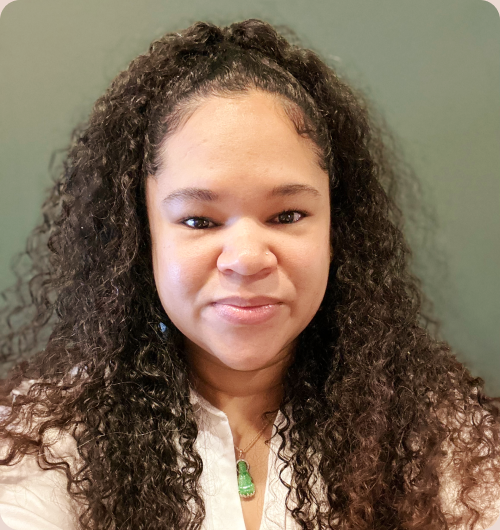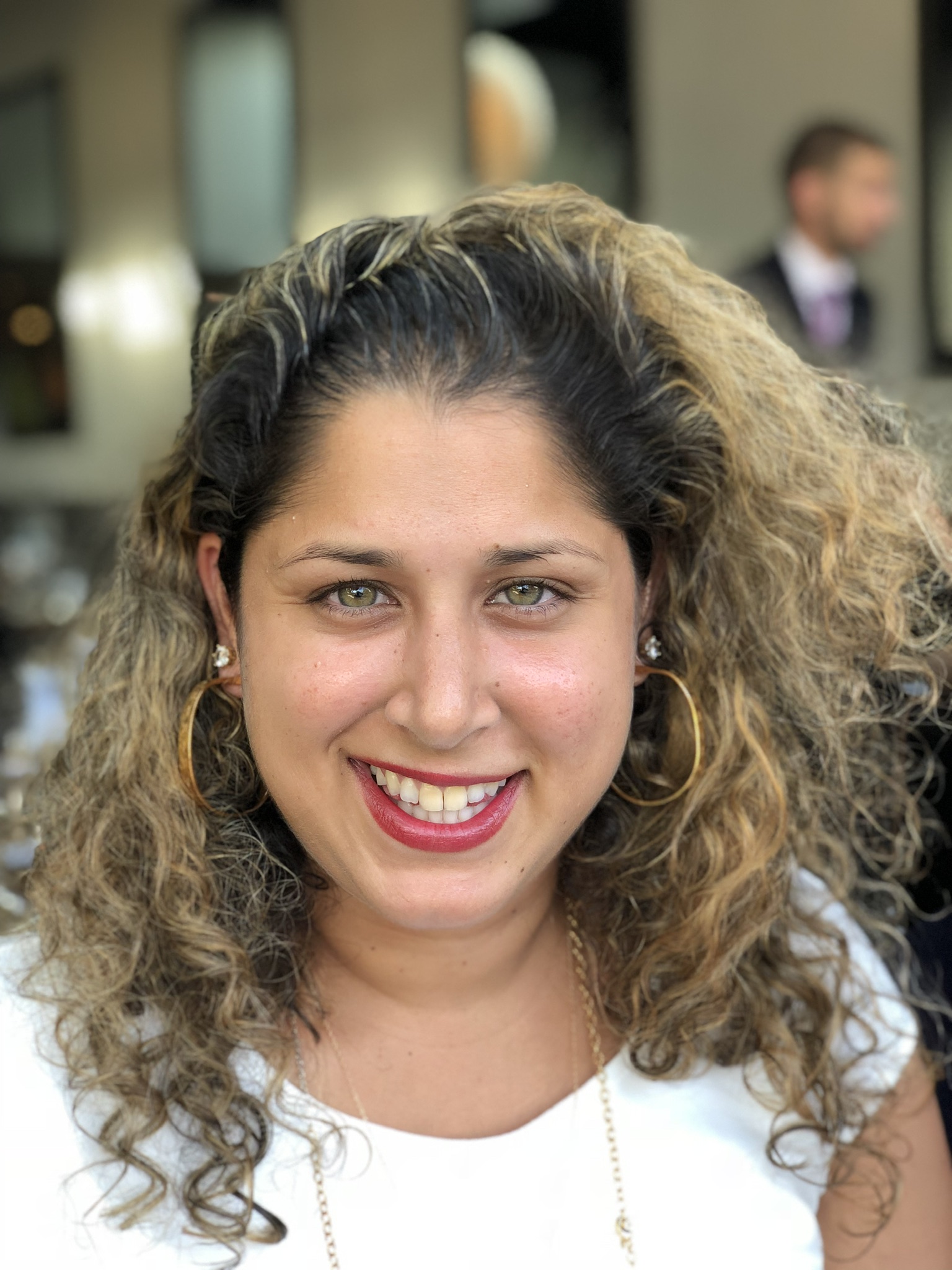


San Francisco Affordable IVF
Several San Francisco Bay Area fertility clinics strive to offer affordable IVF options


While the San Francisco Bay Area is notoriously expensive, several options can make IVF treatment more affordable.
The overall cost of your reproductive care at Bay IVF should be significantly more affordable than the prevailing charges at other San Francisco fertility clinics.

At Bay IVF, we understand that fertility treatments represent a significant investment toward your family’s future.
As part of our commitment to you, we are dedicated to providing pricing transparency.
Bay IVF Treatment Fees


In Vitro Fertilization (IVF)
Analgesia
Use of Procedure Room
IVF Duo

Embryo Freezing
Frozen Embryo Transfer
IVF Trio

Embryo Freezing
Frozen Embryo Transfer
Gender Selection
Embryo Freezing

Reciprocal IVF
Embryo Freezing
Egg Freezing

Second Egg Freezing

Embryo Banking IVF
Embryo Freezing
Donor Egg IVF
Embryo Freezing
Frozen Donor Egg IVF
Embryo Freezing
Gestational Surrogacy
Embryo Freezing
Frozen Embryo Transfer
Embryo Assisted Hatching
Please note that the treatment fees do not cover medications (charged by a pharmacy), pre-treatment screening evaluation, and laboratory testing required by the State of California and the FDA.
Your payment in full may be made by personal check, cash, or credit card. We are happy to provide you with physician statements for submission to your insurance company for reimbursement.

IVF Duo and IVF Trio Financial Plans can provide substantial savings over the cost of regular In Vitro Fertilization.
San Francisco Bay Area: IVF vs. IVF Duo Financial Plan
Number of IVF Cycles
Embryo Cryopreservations

Frozen Embryo Transfer

San Francisco Bay Area: IVF vs. IVF Trio Financial Plan
Number of IVF Cycles
Embryo Cryopreservations

Frozen Embryo Transfer


San Francisco Bay Area: Fertility Treatment Financing
We believe that the journey to pregnancy should be an enjoyable experience, free from financial burdens

Bay IVF has partnered with Future Family to provide easy, personalized, and affordable financing options for fertility care. Future Family’s mission is to make fertility care more accessible and affordable.
Future Family offers loans as an alternative to high-interest credit cards and depleting your savings. They provide 0% APR financing for eligible individuals, along with low monthly payment plans. Prequalifying is risk-free, simple, and will not impact your credit score.
Benefits of a Future Family Loan
- Competitive low-interest rates, starting at 0%
- No prepayment penalties
- Funds up to $50,000 – disburse your funds in a matter of a few days
- Loans personalized to your specific needs and treatments
- Treatment costs simplified down to one easy payment
- Q&A sessions with your coach
- Financing options can include a friend or family member

San Francisco Bay Area: Services Covered in Both Single-Cycle IVF
and IVF Duo & IVF Trio

Included
- All in-cycle Clinic visits, physician ultrasound examinations, hormonal assays, and physician clinical monitoring necessary for IVF ovarian stimulation
- Preparation of semen sample(s)
- Egg retrieval procedure, including analgesia and use of the procedure room
- Oocyte identification from follicular fluid
- Fertilization of eggs
- Embryo coculture with granulosa cells, including an extended culture of embryos
- “Fresh” (unfrozen) embryo transfer, provided embryos are available for transfer
- IVF Duo: This financial plan includes up to two cycles of IVF, up to two embryo cryopreservations, and up to two Frozen Embryo Transfer procedures.
- IVF Trio: This financial plan includes up to three cycles of IVF, up to three embryo cryopreservations, and up to three Frozen Embryo Transfer procedures.
- Serum pregnancy test.
Please note that the IVF fees do not cover treatment medications (charged by a pharmacy), pre-treatment screening evaluation, and laboratory testing required by the State of California.

San Francisco Bay Area: Services Covered in Frozen Embryo Transfer

The complexity and cost of a Frozen Embryo Transfer are substantially less than having to repeat the entire IVF treatment.
The complexity and cost of a Frozen Embryo Transfer are significantly lower compared to repeating the entire IVF treatment.
The majority of cryopreserved embryos successfully survive the cryopreservation and thawing process, and the implantation rate of thawed embryos is equivalent to that of “fresh” embryos.
Included
- All in-cycle office visits, physician ultrasound examination(s), and clinical monitoring necessary for endometrial stimulation
- Estrogen and progesterone determinations
- Frozen embryo thawing procedure
- Culture of the thawed embryo(s)
- Assisted Hatching procedure
- Embryo transfer
- Serum pregnancy test
Please note that the treatment fee does not cover medications (charged by a pharmacy) and laboratory testing required by the State of California.

San Francisco Bay Area: Services Covered in Frozen Donor Egg IVF Fee

Since not all eggs are expected to successfully thaw, fertilize, and develop normally, egg banks typically sell frozen eggs in cohorts of 5-8 eggs. The purpose of such cohorts is to increase the chances of obtaining good-quality embryos suitable for transfer.
Included
- Thawing of cryopreserved eggs
- Preparation of semen sample(s)
- Insemination of eggs (ICSI procedure)
- Embryo coculture with granulosa cells, including an extended culture of embryos
- Embryo cryopreservation (vitrification)
Please note that the Frozen Donor Egg cost does not cover treatment medications (charged by a pharmacy), pre-treatment screening evaluation, laboratory testing required by the State of California, and subsequent Frozen Embryo Transfer procedure(s).
IVF Treatment Process
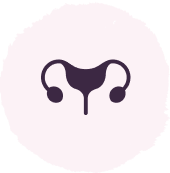
1 — Ovarian stimulation
Your treatment is always individualized to maximize the probability of a successful outcome. You will receive your personalized ovarian stimulation calendar

2 — Egg retrieval procedure
The egg retrieval procedure is performed at our Clinic. The procedure typically takes only a few minutes, and we use conscious sedation for comfortable analgesia

4 — Culture of embryos
Evidence of fertilization can be seen the next day, approximately 16 hours after insemination. The fertilized eggs are then transferred into a growth medium and continue to be cultured in our laboratory
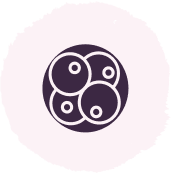
3 — Fertilization of eggs
On average, eight to fourteen eggs are retrieved during the egg retrieval procedure. Once identified, the eggs are combined with sperm and placed in petri dishes filled with culture medium

5 — Assisted hatching
of embryos
A laboratory procedure that creates a “weak spot” in the eggshell of an embryo. This technique enhances the chances of the embryo hatching out of its shell and successfully implanting

6 —Embryo transfer
One or two embryos are carefully loaded into the tip of a thin embryo transfer catheter. The catheter is then guided through the cervix to the top of the endometrial cavity, where the embryo(s) are gently released
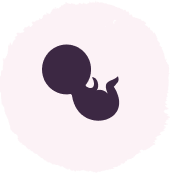
7 — Embryo implantation
After the embryo transfer, the endometrial lining gently supports the embryo(s) within the top of the uterus. There are no restrictions on your physical activity


Prerequisites for IVF, Embryo Banking, and Gender Selection
Only a few treatment prerequisites are needed before the start of your treatment. They assess the egg and sperm quality and ensure that embryos can be accurately placed in a healthy uterus.
Female partner’s age
The likelihood of a successful IVF treatment significantly decreases by the age of 44. To be eligible for IVF treatment, you must be 43 years and 11 months or younger when your treatment begins. Patients who are 44 and older should strongly consider Donor Egg IVF as the most effective treatment option for achieving a successful pregnancy.
Female partner’s weight
For an optimal ovarian response and your safety during the egg retrieval procedure, it is important that your BMI is no greater than 31. If your BMI is higher, we recommend following the IVF Diet and Lifestyle (PDF) recommendations as closely as possible. By doing so, you can achieve weight loss at an appropriate rate, which may significantly enhance your chances of a successful pregnancy.
Pathogen testing
This testing is required by the State of California. You and your partner (if applicable) must be tested for Hepatitis B-Surface Antigen, Hepatitis C-Antibody, HIV I&II, HTLV I&II, and RPR.
Ovarian Reserve Assay (ORA)
ORA assesses the likelihood of producing normal-quality eggs. It involves measuring the levels of Follicle Stimulating Hormone (FSH), estradiol (estrogen, E2), and Anti-Mullerian Hormone (AMH) in the blood.
These test results provide insights into the quality of eggs and are utilized to optimize your ovarian stimulation.
Uterine measurement and saline ultrasound
Knowing the length of the uterus is essential for precise embryo placement. Saline ultrasound is performed to eliminate the presence of intrauterine polyps and fibroids.
Semen evaluation
The male partner’s semen will be assessed at the Bay IVF laboratory to determine the optimal method of semen preparation for IVF egg insemination.
Parents’ genetic testing (optional)
All prospective parents should consider genetic screening for hundreds of the most prevalent genetic diseases. Please inform us during your initial appointment at Bay IVF if you would like to have your blood sample sent for genetic screening.
IVF diet and lifestyle
Environmental factors can greatly influence reproductive health. We encourage you to review the IVF Diet and Lifestyle document (PDF) for a comprehensive list of requirements regarding reproductive health and a recommended source for dietary supplements.


Affordable IVF Treatment in the San Francisco Bay Area: A Guide
The San Francisco Bay Area, known for its high cost of living, offers a range of options for more affordable IVF treatment. You can find an affordable IVF treatment plan in the San Francisco Bay Area by exploring the following options.
Factors affecting the affordability of IVF costs in the San Francisco Bay Area
Clinic Fees: The cost of IVF treatment varies among San Francisco Bay Area clinics, but it typically includes consultation fees, monitoring appointments, and the procedure itself.
Medication Costs: IVF requires medications to stimulate the ovaries, trigger ovulation, and support the uterine lining. These medications can be a significant portion of the overall cost.
Additional Procedures: Some IVF cycles may require additional procedures, such as genetic testing, embryo freezing, or assisted hatching, which can add to the cost.
Multi-cycle packages: Some San Francisco Bay Area fertility clinics offer discounted rates when purchasing multiple IVF treatment cycles upfront.
Insurance Coverage: While some insurance plans cover all or part of IVF treatment, coverage varies widely.
Financial Assistance Programs: Many San Francisco Bay Area fertility clinics make IVF treatment more affordable by offering financial assistance programs or discounts.
Finding affordable IVF treatment in the San Francisco Bay Area
Several San Francisco Bay Area fertility clinics offer competitive pricing and financial assistance programs. Researching and comparing options is advisable to find the best fit for your budget and needs.
Bay IVF clinic emphasizes transparent pricing and offers IVF cycle packages at a competitive rate.
Additional ways to make IVF treatment more affordable
Transparency is crucial: Ask detailed questions about all-inclusive costs and potential additional fees before starting treatment.
Maximize insurance coverage: Check with your insurance provider to understand the covered fertility services.
Medications: Explore options for purchasing fertility medications. Some pharmacies may offer lower prices than others.
Travel: While some tests might require travel to a specific San Francisco Bay Area clinic, inquire about options for remote monitoring or telehealth consultations where possible.
Financial Assistance Programs: Inquire about financial assistance programs offered by clinics or organizations that may make the IVF treatment more affordable.
Success rates: Cost isn’t the only factor. Consider the clinic’s success rates when making your decision.
Free consultations: Many San Francisco Bay Area fertility clinics offer free in-person or video consultations to discuss your situation and treatment options.



Single Mother Families
and LGBTQ+
We are proud to be the fertility clinic providing IVF for single mothers and LGBTQ+


FAQ — Find Answers to Your Queries
Here are some of the most commonly asked fertility-related questions. A more comprehensive FAQ selection is available on the FAQ page.
Do medications used in the IVF treatment have any side effects?
Most patients should expect minimal, if any, side effects from the medications used in In Vitro Fertilization. You should be able to continue with your everyday activities during the treatment.
How long does it take to complete a cycle of IVF?
It typically takes approximately 6 to 8 weeks from the start of your treatment to the egg retrieval and embryo transfer.
Is the egg retrieval procedure painful?
Your egg retrieval should be a very comfortable experience as we use effective pain and relaxation medications. Most patients will sleep through the 5-10 minute egg retrieval procedure. Some may experience mild menstrual-like cramping.
What is ICSI, and how does it affect my embryos?
n the Intracytoplasmic Sperm Injection (ICSI) procedure, a single sperm is directly inserted into the center of an egg. ICSI has been widely used since 1993, and approximately 2 million babies have been born worldwide without significant side effects through the use of ICSI.
I am over 40. Should I plan to do PGT?
You may consider adding Preimplantation Genetic Testing (PGT) to your In Vitro Fertilization or Donor Egg IVF treatment. If you choose to do so, it eliminates the need for amniocentesis. While adding PGT to these treatments has not been proven to improve the chances of a successful outcome consistently, it can help reduce the risk of miscarriage.
How many embryos should we transfer?
We adhere to the recommendation of the American Society for Reproductive Medicine that most patients should consider transferring only one or two embryos. While we will always provide guidance, the ultimate decision of whether to transfer one or two embryos will be up to you.
Is bed rest recommended after an embryo transfer?
From a conception standpoint, it is not recommended to rest immediately after embryo transfer. Recent studies have shown that remaining active and moving around after the transfer can increase the probability of implantation. Therefore, it is advised to start moving around immediately after your transfer.
I am from the LGBTQ+ community. Can I have my treatment at Bay IVF?
Yes! We take pride in being one of the first fertility clinics in Northern California to offer In Vitro Fertilization services for lesbian partners. Our clinic is LGBTQ+ friendly and experienced in both lesbian IVF and Reciprocal IVF.
Meet Your Doctor

- Dr. Polansky received his medical diploma from Charles University in Prague, the Czech Republic, in 1978.
- After completing his OB/GYN residency at Jewish Hospital in Saint Louis, MO, he graduated from the Reproductive Endocrinology and Infertility (REI) fellowship at Stanford University in 1985.
- In the same year, he co-founded the Stanford IVF Clinic.
- Dr. Polansky obtained board certification in Obstetrics and Gynecology in 1986 and became REI subspecialty board certified in 1988.
- In 1987, he left Stanford University and established Nova IVF.
- In 2011, he founded Bay IVF, where he provides advanced fertility treatments with a holistic approach, utilizing state-of-the-art techniques.
- Dr. Polansky personally performs ultrasound examinations, egg retrievals, embryo transfers, and ovarian and endometrial stimulations for his patients.
- He is deeply committed to his patients and is always ready to lend a helping hand.
Frank Polansky, M.D.



Initial Appointment Questions
When you call to schedule your consultation, one of our Front Office Coordinators will ask you a short series of questions regarding your reproductive history.
Your Initial Visit at Bay IVF
Attending a new patient appointment at a fertility clinic can be stressful. Our primary objective is to ensure that your initial visit is friendly and relaxing. We encourage you to ask questions at every step of the process.

1 — When You Arrive
You will be welcomed by one of the clinic receptionists. One of our nurses will measure your height and weight and take your blood pressure

2 — Meet Your Doctor
Dr. Polansky will ask you a series of clarifying questions and then provide you with a summary of the factors contributing to your infertility
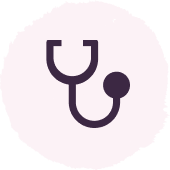
4 — Exam Room
One of the nurses will escort you to an examination room. Your examination will begin with listening to your lungs and heart

3 — Ask Your Questions
You will then have a discussion with him about the most suitable reproductive treatment(s) for you. During this time, you will have the opportunity to ask any questions you may have

5 — Ultrasound of the Ovaries
The next step is a pelvic ultrasound to examine the uterus and ovaries. This ultrasound will help determine the number of antral follicles present within the ovaries

6 — Financial Part
Following that, you will have a discussion with one of the financial advisors regarding the financial aspects of your treatment, including potential treatment financing options

8 — Support 24/7
If you have any questions after leaving the clinic, please feel free to reach out to us via phone call, text, or email. Open and discreet communication is an integral part of the care we provide at Bay IVF

7 — What About Time?
Your entire visit is expected to last approximately one hour


Schedule Your Initial Consultation With Dr. Polansky
Online (free) or In-Person
Call or Text Us: 650-322-0500
You can also complete the form below to request your initial consultation


We look forward to meeting you at Bay IVF and, when your treatment is successful, celebrating your new pregnancy!





